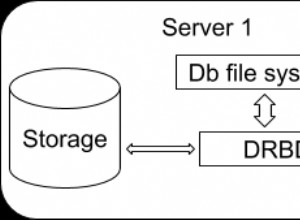ATUALIZAÇÃO:
Além do novo comentário abaixo:
(
SELECT t.*, COUNT(*) AS tagcount
FROM tagged td
LEFT JOIN tags t ON (t.id = td.tag_id)
GROUP BY td.tag_id
ORDER BY tagcount DESC, t.title ASC
LIMIT 3
) ORDER BY title ASC;
Resultado:
+------+------------+----------+
| id | title | tagcount |
+------+------------+----------+
| 3 | javascript | 2 |
| 1 | mysql | 2 |
| 2 | php | 3 |
+------+------------+----------+
3 rows in set (0.00 sec)
Basta alterar o
LIMIT 3 para LIMIT 10 para obter o top 10 em vez do top 3. Resposta anterior:
Por que você não adiciona um
LIMIT 10 à sua consulta? SELECT t.*, COUNT(*) AS tagcount
FROM tagged td
LEFT JOIN tags t ON (t.id = td.tag_id)
GROUP BY td.tag_id
ORDER BY tagcount DESC, t.title ASC
LIMIT 10;
Caso de teste:
CREATE TABLE tags (id int, title varchar(20));
CREATE TABLE tagged (tag_id int, post_id int);
INSERT INTO tags VALUES (1, 'mysql');
INSERT INTO tags VALUES (2, 'php');
INSERT INTO tags VALUES (3, 'javascript');
INSERT INTO tags VALUES (4, 'c');
INSERT INTO tagged VALUES (1, 1);
INSERT INTO tagged VALUES (2, 1);
INSERT INTO tagged VALUES (1, 2);
INSERT INTO tagged VALUES (2, 2);
INSERT INTO tagged VALUES (3, 3);
INSERT INTO tagged VALUES (2, 4);
INSERT INTO tagged VALUES (3, 4);
INSERT INTO tagged VALUES (4, 5);
Resultado (usando
LIMIT 3 ):+------+------------+----------+
| id | title | tagcount |
+------+------------+----------+
| 2 | php | 3 |
| 3 | javascript | 2 |
| 1 | mysql | 2 |
+------+------------+----------+
3 rows in set (0.00 sec)
Observe como o
[c] ficou fora dos 3 primeiros resultados, e as linhas são ordenadas alfabeticamente em caso de empate. 



